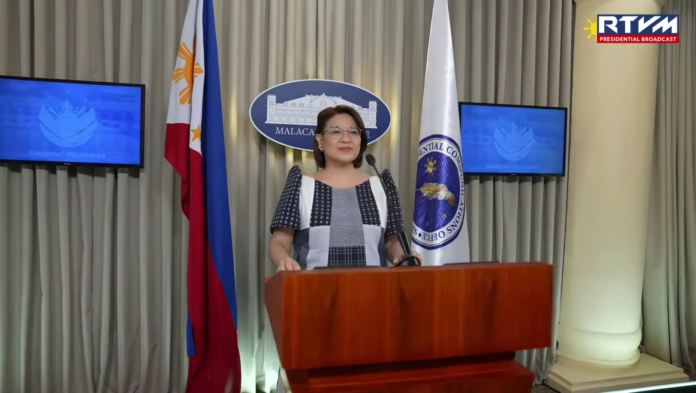President Ferdinand Marcos Jr.’s reported plan to personally monitor the 2026 national budget process and attend the bicameral conference drew mixed reaction from lawmakers yesterday.
Senator Risa Hontiveros warned it would violate the Constitution even as senator-elect Panfilo Lacson said it sends a strong signal to Congress to respect the budget process.
“He cannot. He should not. The Constitution does not allow it,” Hontiveros said. “The power of the purse is wielded by Congress and Congress alone, not by the executive, not by any member of the executive, not even by the chief executive.”
Lacson, however, said the President’s plan sends a strong and clear message to Congress about the importance of respecting the budget process and ensuring transparency.
“As long as the President does not actively participate in the bicameral conference deliberations and merely observes—so as to avoid any misunderstanding regarding the legislature’s traditional exercise of the ‘power of the purse’—I support this gesture,” the returning senator said.
“It will send a strong signal to Congress members not to undermine our role in the budget process… (and that) the national budget should not be treated as an individual prerogative… (but) must align with the administration’s policy direction towards achieving the country’s development goals in 2026 and beyond,” Lacson added.
Albay Rep. Joey Salceda said he sees nothing wrong with President Marcos personally watching over the 2026 budget process as conveyed by Budget Secretary Amenah Pangandaman.
“The President was a former senator and congressman. On that basis alone, our rules allow him as a former colleague to be present and be deferred to in most of our proceedings,” said Salceda, chair of the House committee on ways and means.
“It’s his proposed budget after all. And we allow Secretaries to be present in bicams for most bills, what more the President himself,” Salceda added.
Lacson said he has consistently advocated for transparency in the budget process, including allowing members of the media and the public to observe the deliberations from the gallery during the bicameral conference committee meetings.
“The public and the media should be allowed in the gallery. While they won’t directly participate in the deliberations, they will at least be informed about what is happening. Currently, the bicameral discussions involve members whispering to each other, keeping the public in the dark,” said Lacson, who filed Senate Bill 24 in the 18th Congress to encourage public participation in the national budget process.
Still, Hontiveros maintained the executive’s role is limited to submitting the national expenditure program to the House of Representatives.
After submission, she said the budget deliberation becomes solely the responsibility of the legislature.
Hontiveros added that the only time the Office of the President may step back into the process is after Congress has passed the final budget for the president’s signature or veto.
“The President has no role, even as an observer, in the bicameral conference under the Constitution. If they insist on it, they could end up facing problems. They might even face legal action,” she warned.
According to Hontiveros, institutional reforms should take precedence over presidential involvement in bicameral budget meetings.
“There are many long-standing budget reform proposals from advocates that we should prioritize and implement, rather than allowing the President to take part in the bicam,” she said.
Pangandaman, for her part, said the President wants to ensure the inclusion of priority government projects, especially the P20 per kilo rice project of the Department of Agriculture and the flood control projects by the Department of Public Works and Highways.
The Development Budget Coordination Committee is scheduled to meet on Monday, May 26, to finalize and announce the official budget ceiling, which will depend on revenue projections from the Department of Finance, Bureau of Internal Revenue, and Bureau of Customs.
Once the budget ceiling and proposed programs are finalized, the DBM, together with the DBCC, DOF, and the Department of Economy, Planning, and Development, will meet with the President to review key projects, especially those under the administration’s priority agenda.








